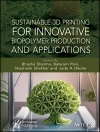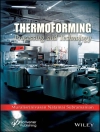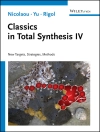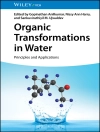All-carbon composites are carbon materials reinforced with other carbon materials, typically nanostructures such as carbon nanofibers or nanotubes. There are a large number of all-carbon materials, many of which demonstrate unique and useful sets of properties. Combining and hybridising different carbon materials and nanomaterials together also opens up a number of possibilities to fine-tune the materials for desirable combinations of these properties.
All-carbon Composites and Hybrids provides a broad overview of these materials including discussions of synthesis, characterisation and the applications of a wide variety of all-carbon composite materials. This will be a useful volume for any researchers interested in carbon and nanotechnology.
İçerik tablosu
Hybrids of Graphite, Graphene and Graphene Oxide;
Production of Carbon Nanostructure/Graphene Oxide Composites by Self-assembly and their Applications;
Synthesis of Carbon Nanotube/Graphene Hybrids by Chemical Vapor Deposition;
Design of Graphene/CNT-based Nanocomposites: A Stepping Stone for Energy-related Applications;
One-dimensional Carbon Nanotube Decorated Two-dimensional Reduced Graphene Oxide Composite: Insight from Synthesis to Application in Dye Sensitized Solar Cells;
Carbon Dot-based Composites: Recent Progress, Challenges and Future Outlook;
Carbon Dots Derived from Natural Carbon Sources: Preparation, Chemical Functionalization, Characterization, and Applications;
Composites of Carbon Nanodots for Hydrogen Energy Generation;
Clusters of Fullerenes;
Less-common Carbon–Carbon Nanocomposites;
Advances in Polymeric Nanocomposites Incorporating Graphene–Fullerene and Graphene Oxide–Fullerene Hybrids;
Mechanical Properties of Graphene–Carbon Nanotube Reinforced Hybrid Polymer Nanocomposites;
Final Remarks
Yazar hakkında
Dr. Oxana V. Kharissova (born in 1969 in Ukraine, former USSR, has lived in Mexico from 1995) is currently a Professor and Researcher at the Universidad Autónoma de Nuevo León (UANL). She earned her Ph.D. in Materials from the UANL. She is the co-author of 8 books, 12 book chapters, 105 articles, and holds eight patents. Her research focuses on materials, nanotechnology (carbon nanotubes, graphene, nanostructurized metals, fullerenes), microwave irradiation and crystallography and nanotechnology-based methods for petroleum treatment. Dr. Kharissova holds the awards “Flama, Vida y Mujer 2017” and “Tecnos” (2004). She is an expert of the National Council for Science & Technology of Mexico (Conacyt).Dr. Boris I. Kharisov (born in 1964, in Russia, has lived in Mexico from 1994) is currently a Professor and Researcher at the Universidad Autónoma de Nuevo León (UANL). He took part in the liquidation of the consequences of the Chernobyl accident, working in the contaminated zone in 1987. He earned his Ph D in inorganic chemistry in 1993, from the Moscow State University, Russia and Dr. Hab. in physical chemistry in 2006 from Rostov State University, Russia. He specializes in Materials chemistry, coordination and inorganic chemistry, phthalocyanines, ultrasound, nanotechnology, chemical treatment of petroleum and environmental remediation. He is the co-author of 15 books, 186 articles, 13 book chapters, and holds eight patents. He is on the editorial board of four journals and has co-edited three special issues of international journals.












